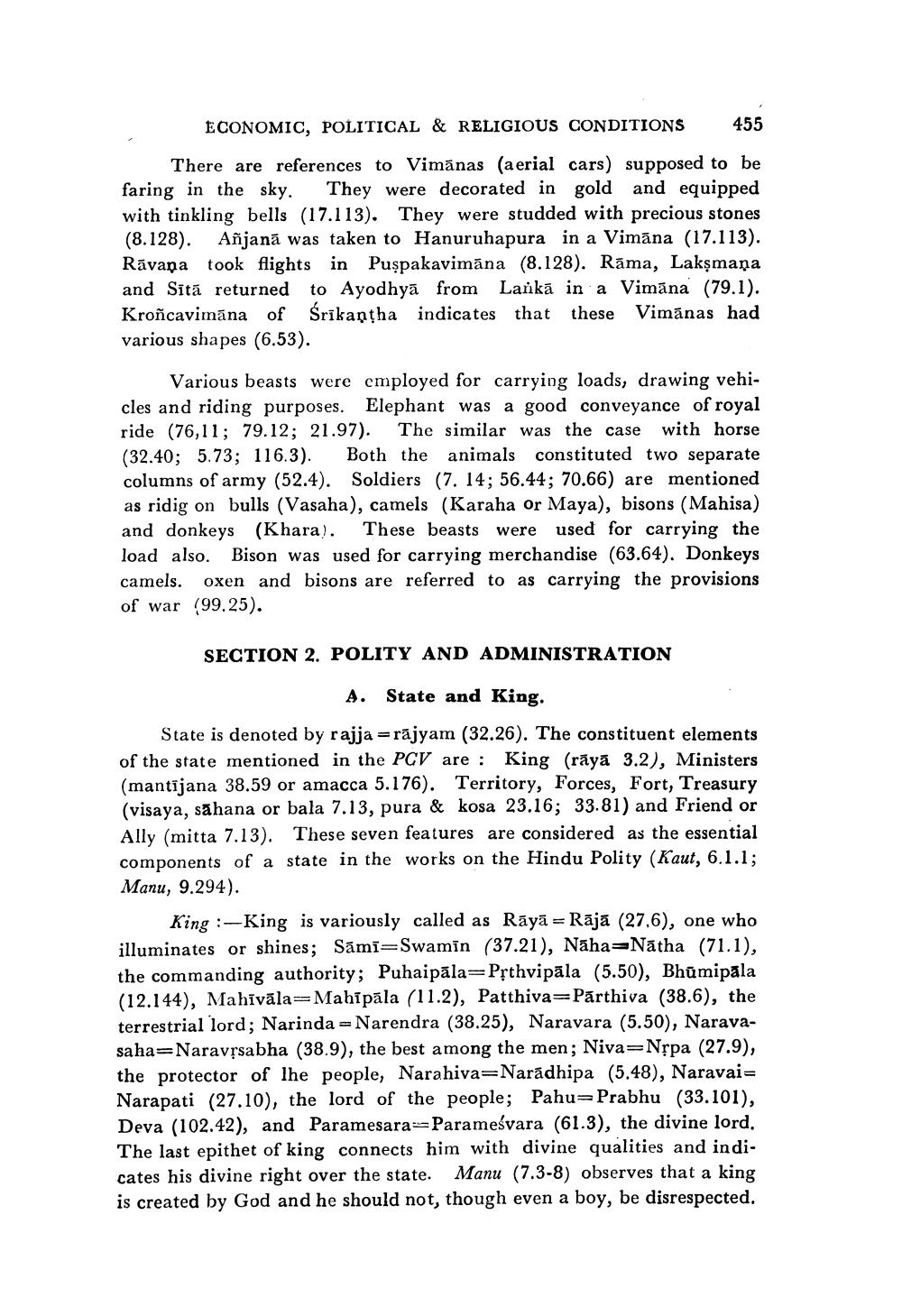________________
ECONOMIC, POLITICAL & RELIGIOUS CONDITIONS
455
There are references to Vimanas (aerial cars) supposed to be faring in the sky. They were decorated in gold and equipped with tinkling bells (17.113). They were studded with precious stones (8.128). Añjanā was taken to Hanuruhapura in a Vimāna (17.113). Rāvana took flights in Puşpakavimāna (8.128). Rāma, Lakşmaņa and Sitā returned to Ayodhyā from Lankā in a Vimāna (79.1). Kroñcavimāna of Śrīkaņţha indicates that these Vimānas had various shapes (6.53).
Various beasts were cmployed for carrying loads, drawing vehicles and riding purposes. Elephant was a good conveyance of royal ride (76,11; 79.12; 21.97). The similar was the case with horse (32.40; 5.73; 116.3). Both the animals constituted two separate columns of army (52.4). Soldiers (7. 14; 56.44; 70.66) are mentioned as ridig on bulls (Vasaha), camels (Karaha Or Maya), bisons (Mahisa) and donkeys (Khara). These beasts were used for carrying the load also. Bison was used for carrying merchandise (63.64). Donkeys camels. oxen and bisons are referred to as carrying the provisions of war (99.25).
SECTION 2. POLITY AND ADMINISTRATION
A. State and King. State is denoted by rajja =rājyam (32.26). The constituent elements of the state mentioned in the PCV are : King (rāyā 3.2), Ministers (mantījana 38.59 or amacca 5.176). Territory, Forces, Fort, Treasury (visaya, sahana or bala 7.13, pura & kosa 23.16; 33.81) and Friend or Ally (mitta 7.13). These seven features are considered as the essential components of a state in the works on the Hindu Polity (Kaut, 6.1.1; Manu, 9.294).
King :-King is variously called as Rāyā = Rājā (27,6), one who illuminates or shines; Sāmī=Swamin (37.21), Naha-Nătha (71.1), the commanding authority; Puhaipāla=Pệthvipāla (5.50), Bhūmipala (12.144), Mahīvāla=Mahīpāla (11.2), Patthiva=Pārthiva (38.6), the terrestrial lord; Narinda - Narendra (38.25), Naravara (5.50), Naravasaha=Naravěsabha (38.9), the best among the men; Niva-Nrpa (27.9), the protector of lhe people, Narahiva=Naradhipa (5.48), Naravai= Narapati (27.10), the lord of the people; Pahu=Prabhu (33.101), Deva (102.42), and Paramesara-Parameśvara (61.3), the divine lord. The last epithet of king connects him with divine qualities and in dicates his divine right over the state. Manu (7.3-8) observes that a king is created by God and he should not, though even a boy, be disrespected.




